|
An issue for reflection
WHAT DOES IT MEAN TO BE HAPPY?
|
|

|
| Bruna Marchetti is a philosophical practitioner from Venice, Italy. She is also a photographer. In fact, this month’s photo was taken by Bruna herself! |
| |
|
Caption Competition
The above photo needs a caption (a text). Send us your suggestion! A caption can be a title, or the words of a person in the picture, etc.
Maximum length: 20 words.
Send to: Ran, Carmen, or This email address is being protected from spambots. You need JavaScript enabled to view it.
Deadline: The third Saturday of the month.
The Agora team will select the most philosophical, and/or smartest, and/or funniest caption. The winning caption will be placed under the photo, together with the winner's name.
|
|
Is happiness a subjective feeling?
If so, then do I have to feel it all the time, without interruption, in order to be a happy person? What happens when I am busy, distracted, tired, and I don’t feel anything – am I no longer happy?
Or, is happiness an objective state – a state of well-being, of health and harmony, of prosperity?
If so, then can I be unhappy without knowing it?
“She thinks she is flourishing, but in fact her health is deteriorating, and her mental capacities are declining.”
Does this mean that – “She thinks she is happy, but in fact she is not happy”?
Is this possible?
|
| |
|

|
October Week 1 quotation
WLADYSLAW TATARKIEWICZ
|
|
Happiness as a justified satisfaction with life
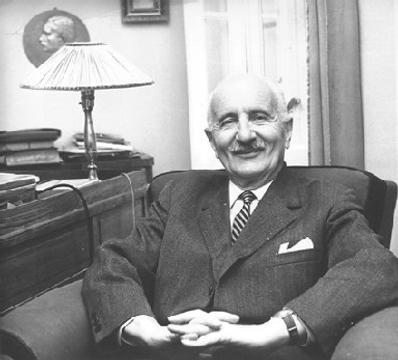 Wladyslaw Tatarkiewicz (1886-1980) was a Polish philosopher, as well as historian of philosophy and of art. He taught at several Polish universities in Warsaw and elsewhere. During World War II he risked his life to give underground lectures in German-occupied Poland. Wladyslaw Tatarkiewicz (1886-1980) was a Polish philosopher, as well as historian of philosophy and of art. He taught at several Polish universities in Warsaw and elsewhere. During World War II he risked his life to give underground lectures in German-occupied Poland.
The following passages are adapted from Tatarkiewicz’s book Analysis of Happiness, published in Polish in 1962. Tatarkiewicz defines happiness as a subjective satisfaction with life, although he adds the condition that this satisfaction must be objectively justified.
1. While every happiness is satisfaction, not every satisfaction is happiness. People who are satisfied partially, or relatively, do not call themselves happy […] Satisfaction is happiness only when it is complete satisfaction.
2. Next, even complete satisfaction does not necessarily add up to happiness. Satisfaction with specific things, however important – health, or an untroubled conscience, success or position – falls short of happiness if it is not accompanied by other satisfactions. It is only partial satisfaction. Happiness requires total satisfaction, in other words satisfaction with life as a whole.
3. Finally, even complete and total satisfaction with life is not enough for happiness if it is only temporary. If this was sufficient, there would be only happy people in the world. There is nobody who has not been satisfied with life at some moment. As Aristotle said: “One swallow does not make summer, nor does one fine day. Similarly, one day or a brief period of happiness does not make a man satisfied or happy.” (Nichomachean ethics I, 7) Happiness means lasting satisfaction.
Thus, happiness can be defined as (1) complete, (2) lasting, (3) satisfying, (4) touching the whole of life. This is an extreme degree of happiness, which is in fact ideal happiness. Given the conditions of human existence, we cannot hope for happiness that is complete, lasing and total, without qualifications, exceptions, or interruptions. There is probably nobody, even among people who are considered happy, who has been satisfied without qualification, or without exception, or without interruption. […] The happy man is one who at least approaches this ideal, this maximum.

4. […] The feeling we call “satisfaction” has an intellectual element. The man who is satisfied is not only emotionally gratified, but also regards his satisfaction as justified. This is why happiness has been defined not as delight, but as satisfaction […] There are various degrees of satisfaction, which may either be mainly emotional or mainly intellectual, and they may range from appreciation to a glowing intoxication with life.
The existence of these two elements in satisfaction [emotional and intellectual] explains why some people say that they are satisfied with life, but that they are not happy. In these people, the two elements of satisfaction are divorced – the emotional form the intellectual, the direct enjoyment of the pleasures of life from the acknowledgement of its value. […]
6. One more attribute has to be added to the definition of happiness, namely that it is justified satisfaction […] This can be seen in the case of people who are satisfied because they think they possess something which in fact they do not. This is the situation of the man who is happy because of his family life, but whose wife is unfaithful. If he is unaware of this he may be satisfied, but we would not call him happy.
Although illusory satisfaction is not happiness, this does not mean that it is worthless. Many people, if unable to achieve real happiness, would settle for the illusion of happiness. Some people deliberately fabricate it. There are drugs like opium which apparently provide, not so much straightforward pleasure, as satisfaction with the world and with life.
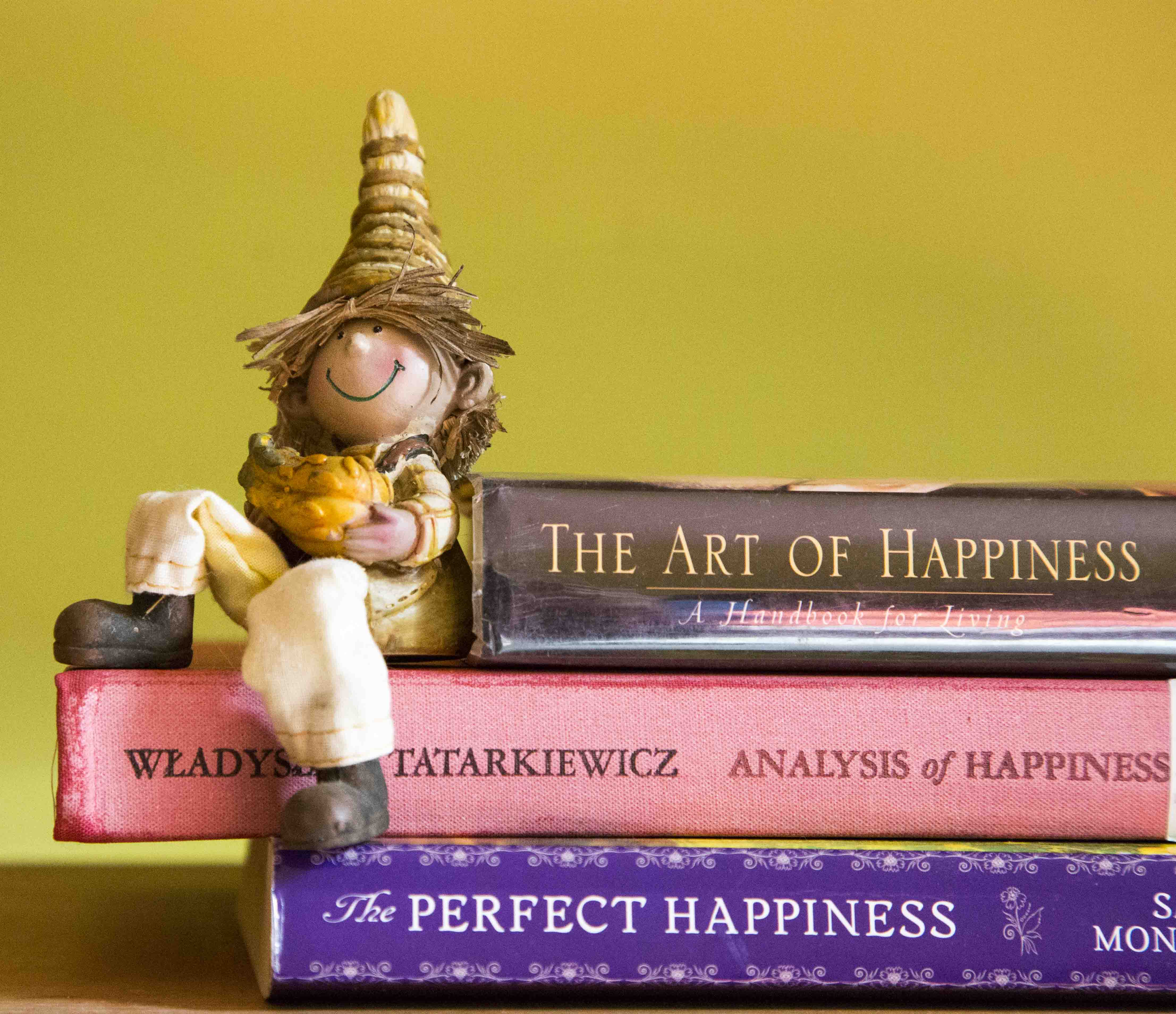
|
|
October Week 2 quotation
ARISTOTLE
|
|
Happiness as a rational, virtous activity
 Aristotle (384 – 322 BC) was one of the most important philosophers in the history of Western philosophy. He was born in Macedonia, was a pupil of Plato, and later was a tutor of Alexander the Great. His writings are systematic, covering most aspects of reality and life. They exerted a tremendous influence on the history of philosophy. Aristotle (384 – 322 BC) was one of the most important philosophers in the history of Western philosophy. He was born in Macedonia, was a pupil of Plato, and later was a tutor of Alexander the Great. His writings are systematic, covering most aspects of reality and life. They exerted a tremendous influence on the history of philosophy.
The following passages are adapted from Aristotle’s Nicomachean Ethics, an important treatise on the principles of ethics. Here Aristotle discusses happiness—“Eudaimonia” in Greek, which is not just a subjective feeling but a state of flourishing. Happiness is the highest aim of human activity, and is pursued for its own sake. Reason, for Aristotle, is the highest human faculty. Thus, happiness consists of rational activity in accordance with virtue throughout one’s life.
Happiness, then, is something final and self-sufficient, and is the goal of every action.
[…]
Now, if the function of man is an activity of the soul which follows or implies a rational principle, […] and if the function of a good man is to do the good and noble – if this is the case, then human good turns out to be activity of the soul in accordance with virtue. And if there are more than one virtue, then in accordance with the best and most complete virtue.
But we must add “in a complete life.” Because one swallow does not make a summer, nor does one day. Likewise, one day, or a short time, does not make a man blessed and happy.
[…]
This account is in harmony with those who identify happiness with virtue, or some specific virtue. But it makes a big difference whether we identify the main good as the possession of virtue or as the use of it, in other words as a state of mind or an activity. Because the state of mind may exist without producing any good result, as in the case of a man who is asleep, or who is somehow inactive. But an activity cannot be like that.
[…]
Now, the pleasures of most people are in conflict with one another, because these pleasures are not pleasant by nature. But for the lovers of what is noble, pleasant things are by nature pleasant. And virtuous actions are like that. Therefore, the life of these people does not need pleasure as an additional attraction, because it has pleasure in itself. Because the man who is not happy to do noble actions is not even good, just as somebody who doesn’t enjoy behaving justly is not regarded a just man, and just as somebody who doesn’t enjoy liberal actions is not regarded a liberal man; and the same in all other cases.
If this is so, then virtuous actions must be in themselves pleasant. But they are also good and noble. And they are good and noble in the highest degree, since the good person makes good judgements about these things. Happiness, then, is the best, most noble, and most pleasant thing in the world.
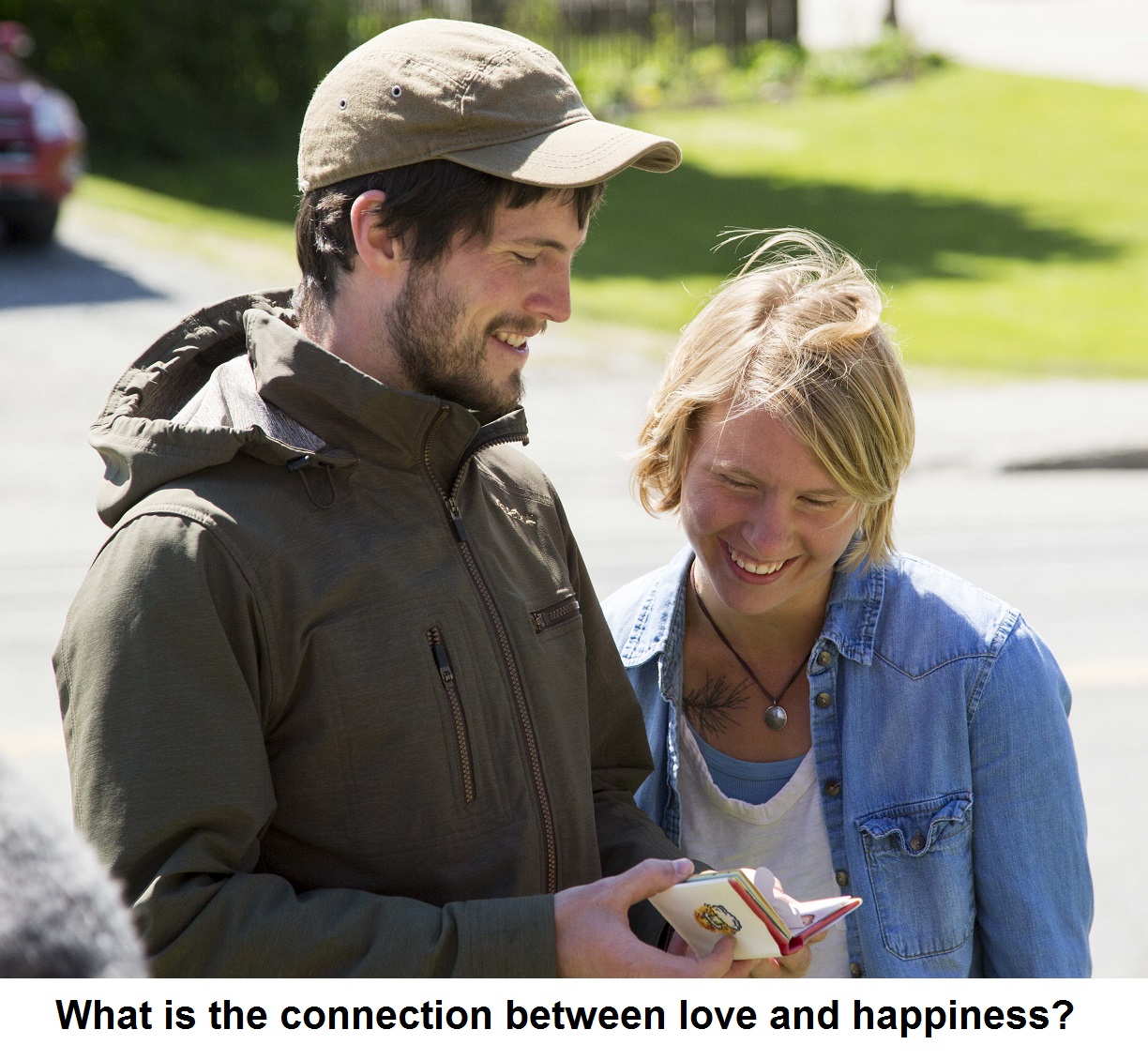
|
|
|
.. ........ |
|
October Week 3 quotation
JOHN STUART MILL
|
|
Higher and lower kinds of happiness
John Stuart Mill (1806-1873) was a British philosopher who was very influential in the fields of Ethics, Political Philosophy, and Social Theory. He was also a parliament member, and an advocate of political freedom, women’s right to vote, and liberal social reforms.
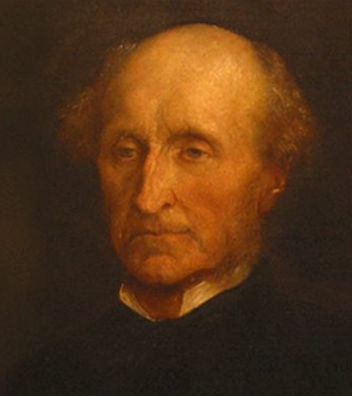 The following text is adopted from Mill’s important book Utilitarianism. In this book he presents his theory that an action is morally right if it gives the greatest happiness possible to as many people as possible. For this reason Mill discusses here the nature of happiness, arguing that some kinds of happiness are higher than others. The following text is adopted from Mill’s important book Utilitarianism. In this book he presents his theory that an action is morally right if it gives the greatest happiness possible to as many people as possible. For this reason Mill discusses here the nature of happiness, arguing that some kinds of happiness are higher than others.
The view which accepts the Greatest Happiness Principle as the foundation of morality holds that actions are right in proportion as they tend to promote happiness. And they are wrong as they tend to produce the reverse of happiness. By “happiness” is meant pleasure, and the absence of pain. By “unhappiness” is meant pain, and the absence of pleasure […] Pleasure, and freedom from pain, are the only things that are desirable as ends. And all desirable things are desirable either because of the pleasure that is found in them, or because they are means to promote pleasure and prevent pain.
Now, such a theory of life is disliked by many minds. The doctrine that life has (as they express it) no higher goal than pleasure is worthy only of pigs, to whom the followers of Epicurus were compared with contempt […]

When attacked this way, the Epicureans have always answered that it is not they, but their accusers who represent human nature in a degrading light.[…] The comparison of the Epicurean life to the life of beasts is felt to be degrading precisely because the pleasures of a beast do not satisfy a human being's conceptions of happiness. Human beings have faculties that are higher than animal appetites, and once they are conscious of these faculties, they do not regard anything as happiness unless it includes their gratification. […] But there is no known Epicurean theory of life which does not regard the pleasures of the intellect, the feelings and imagination, and the moral sentiments, as having a much higher value than the value of mere sensation.
[…]

If I am asked what I mean by pleasures that are different in quality, or what makes one pleasure more valuable than another, there is only one possible answer. Of two pleasures, if one of them is preferred by almost everybody who has experienced both, then this pleasure is more desirable.
[…]
Now, it is unquestionable that those who are acquainted with both pleasures, and who are capable of appreciating and enjoying both, would clearly prefer to live a life which employs the higher faculties. Few human creatures would agree to be changed into a lower animal for a promise of the fullest degree of a beast's pleasures. No intelligent human being would agree to be a fool, no educated person would agree to be an ignoramus, no person of feeling and conscience would be selfish and base, even if they are persuaded that the fool, the unintelligent, or the rascal is more satisfied with his life than they are with their own lives.
[…]
It is better to be a dissatisfied human being than a satisfied pig; better to be a dissatisfied Socrates than a satisfied fool. And if the fool, or the pig, have a different opinion, this is because they only know their own side of the question. The others know both sides.
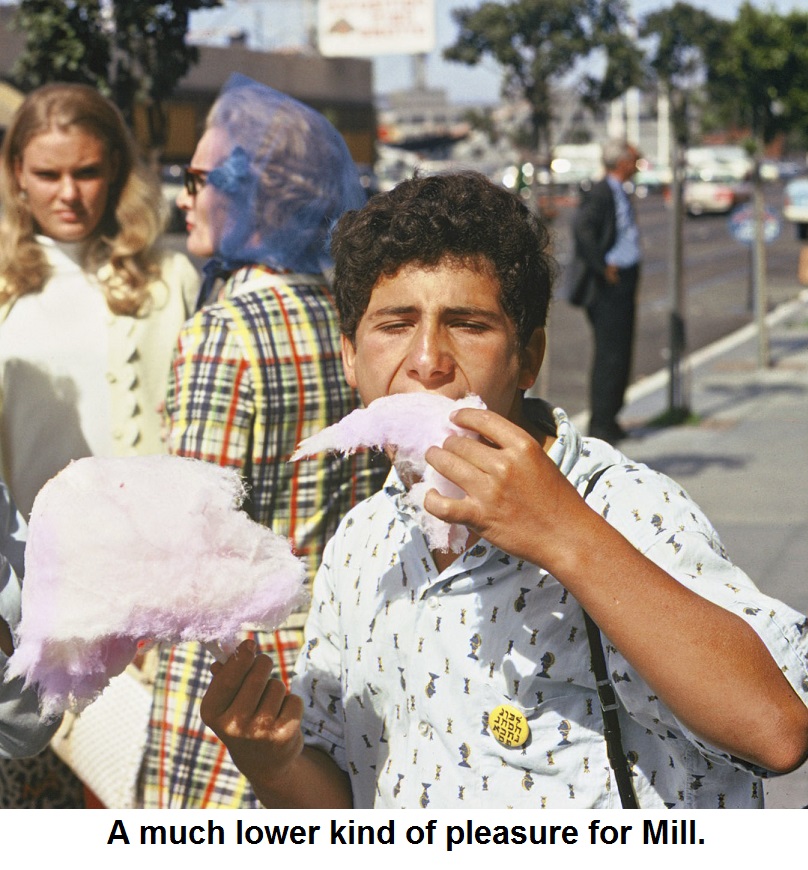
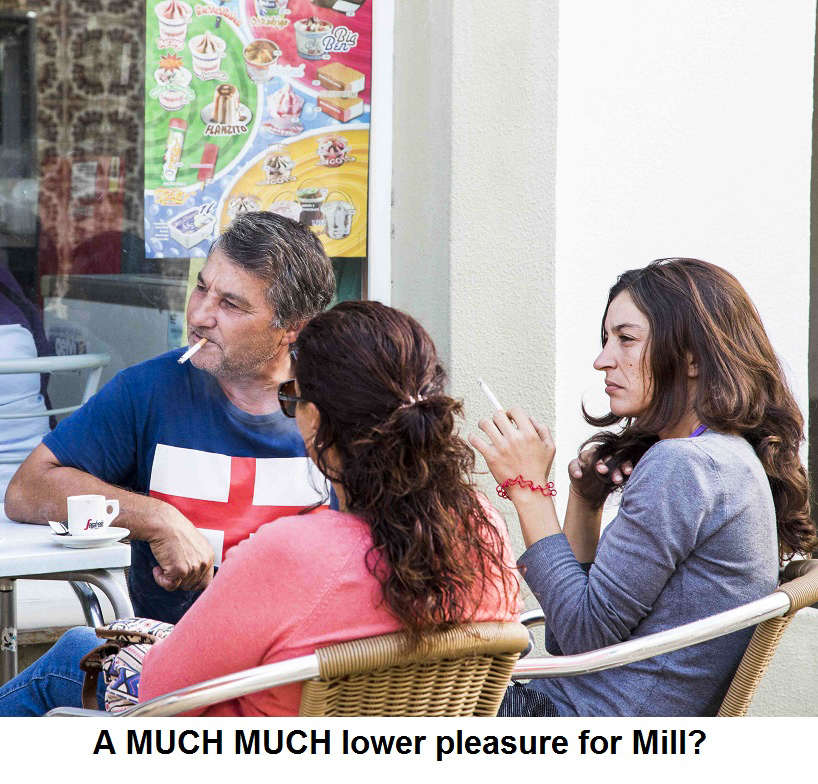
|
|
October Week 4 quotation
BERTRAND RUSSELL
|
|
Happiness of achievement
Bertrand Russell (1872-1970) was an important British philosopher in the first half of the 20th century, as well as a logician and a mathematician. He was one of the founders of modern logic, and made significant contributions to analytic philosophy and philosophy of language. In 1950 he received the Nobel Prize in literature. In certain periods of his life he was also an activist for pacifism and against colonialism and nuclear weapons.
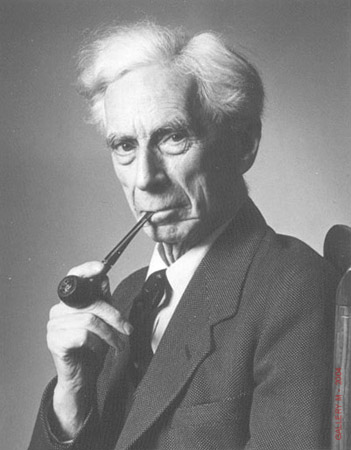 The following text is adopted from Russell’s book The Conquest of Happiness (1930). Russell wrote this book to the person in the street, not to scholars. In the preface to the book he says that the book is based on his own experience and observation, and not on any “profound philosophy.” The following text is adopted from Russell’s book The Conquest of Happiness (1930). Russell wrote this book to the person in the street, not to scholars. In the preface to the book he says that the book is based on his own experience and observation, and not on any “profound philosophy.”
There are two sorts of happiness, although, of course, there are degrees in between. The two sorts can be described as plain happiness and fancy happiness, or animal and spiritual happiness, or happiness of the heart and of the head. […] Perhaps the simplest way to describe the difference between the two sorts of happiness is to say that one sort is open to any human being, and the other is available only to those who can read and write.
When I was a boy I knew a man exploding with happiness, whose business was digging wells. He was very big and had incredible muscles. He could neither read nor write […] His happiness did not depend on intellectual sources. […] It was based on physical energy, having sufficient work, and the overcoming of obstacles in the shape of rock. The happiness of my gardener is of the same species.
[…]
Pleasures exactly similar to those of my gardener are open to the most highly educated people. The difference made by education is only in how these pleasures are obtained. Pleasures of achievement require difficulties which at firstseem too difficult, although at the end they are usually overcome.
[...]
Among the highly educated people of the community, the happiest nowadays are the men of science. Many of the best scientists are emotionally simple, and they get from their work such profound satisfaction that they can enjoy eating and even marrying. Artists and literary men consider it a requirement to be unhappy in their marriages, but men of science quite frequently are capable of old-fashioned domestic happiness. The reason is that the higher parts of their intelligence are fully absorbed by their work, and they do not interfere with regions where they have no work to do. They therefore have no need of complex emotions.
[…]

All the conditions of happiness are realized in the life of the man of science. He has an activity which fully utilizes his abilities, and he achieves results which appear important not only to himself, but also to the general public, even whenthe public cannot understand them at all.
[…]
All unhappiness depends on some kind of dis-integration within the self. There is disintegration which comes from a lack of coordination between the conscious and the unconscious mind. And there is a lack of integration between the self and society, where the two are not joined together by the force of objective interests and affection. The happy person is the person who does not suffer from either of these two failures of unity, and his personality is neither divided against itself nor clashes against the world. Such a man feels himself a citizen of the universe, enjoying freely the spectacle that it offers and the joys that it gives. He is untroubled by the thought of death, because he does not feel himself separate from those who will come after him. The greatest joy is to be found in such profound instinctive union with the stream of life.
|
|